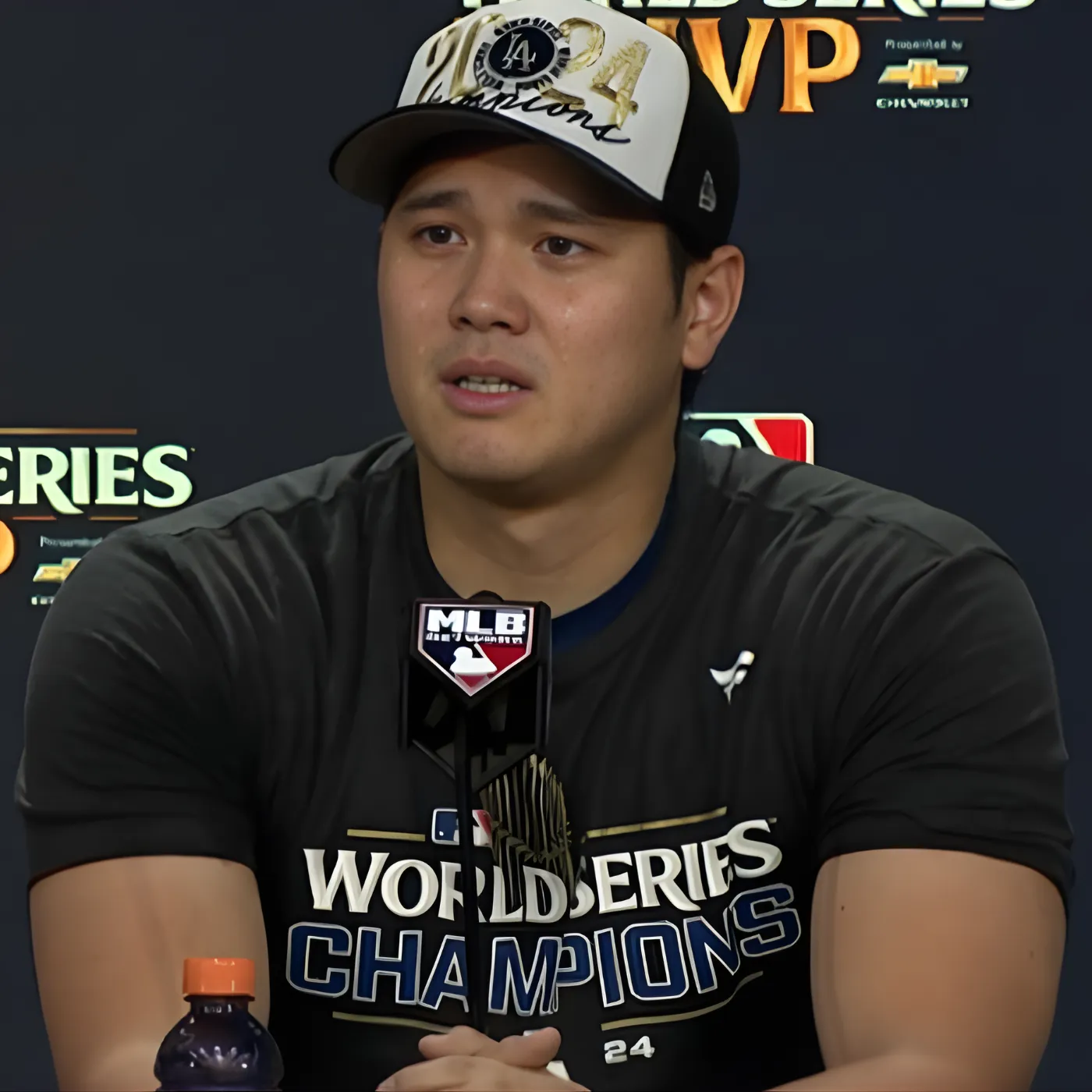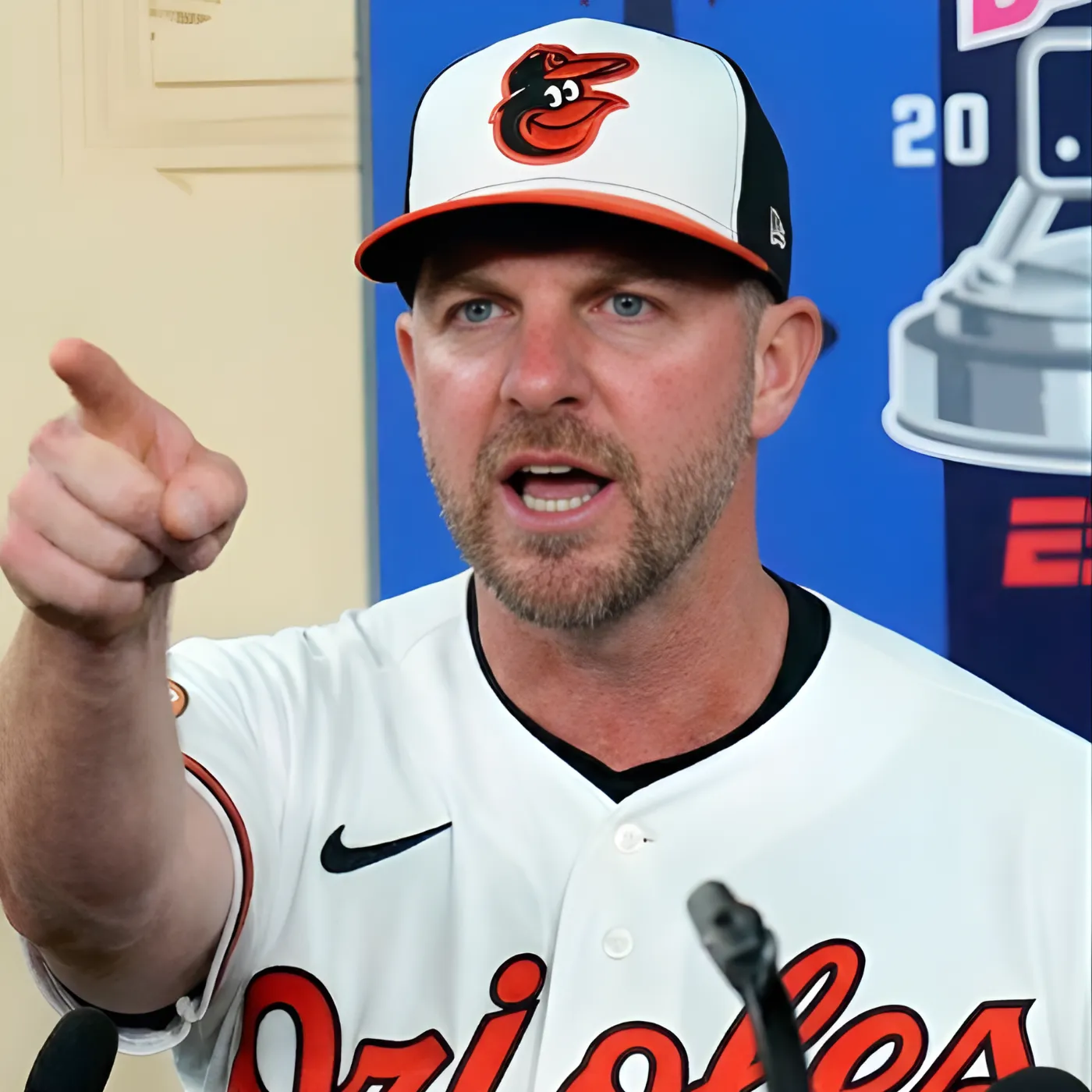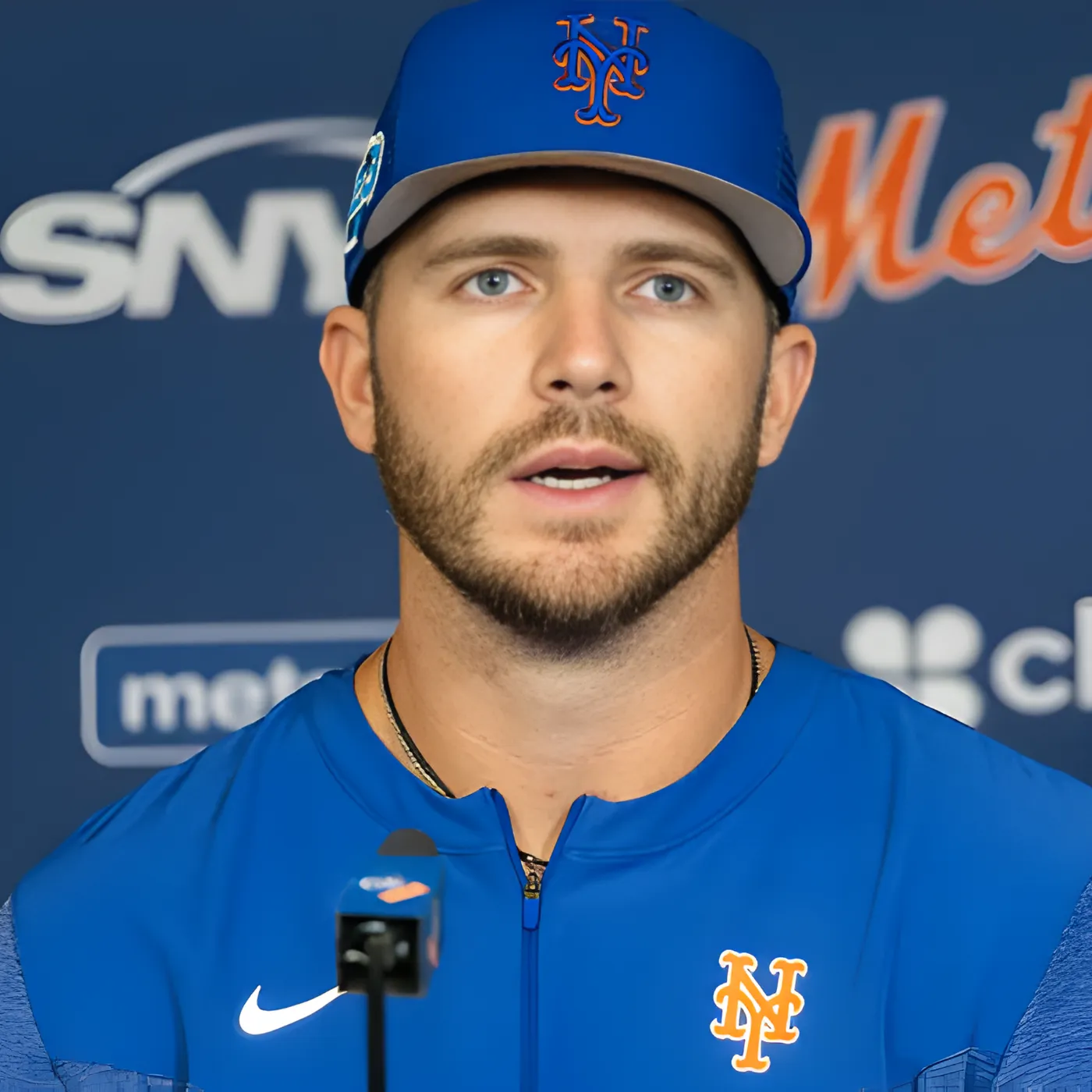
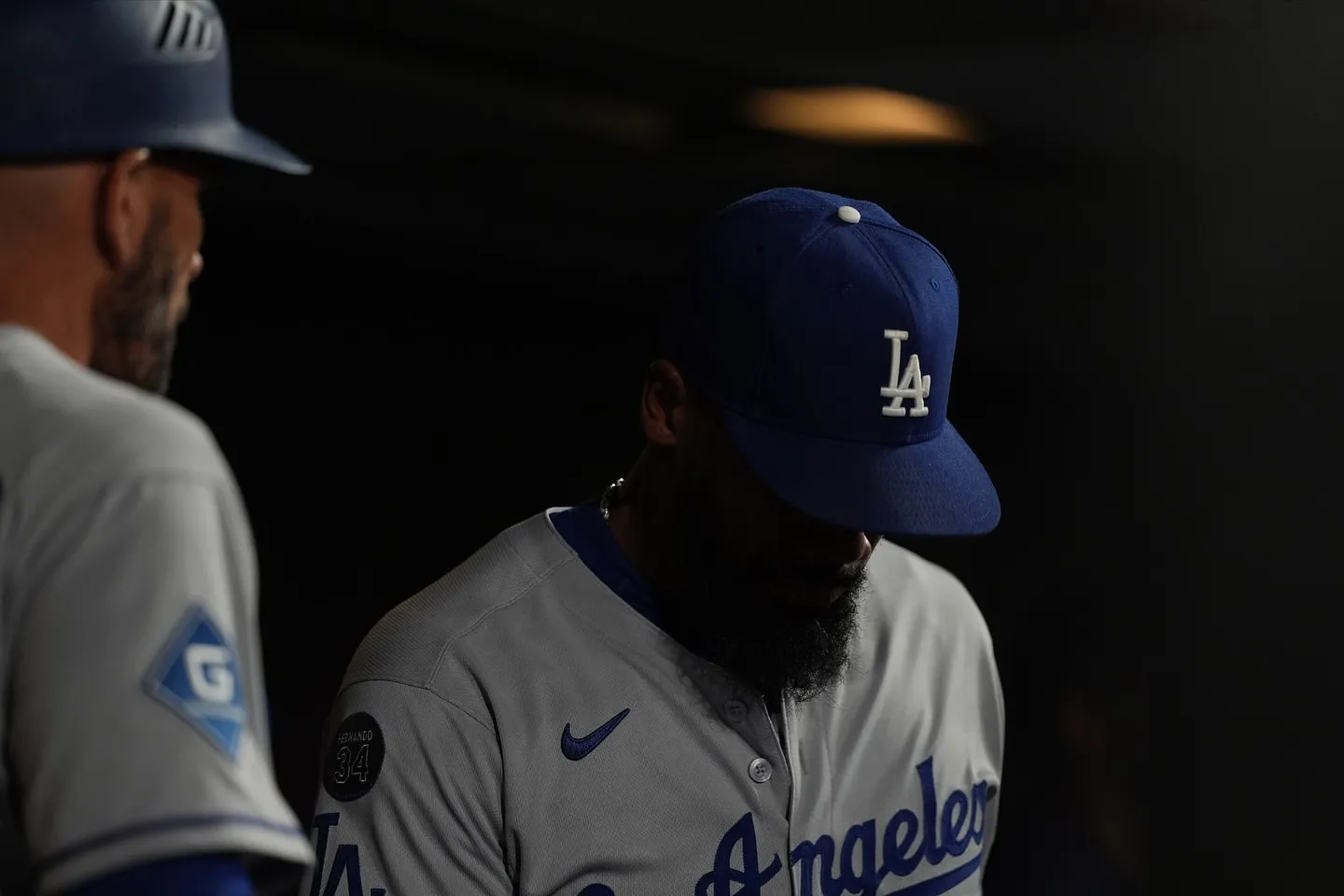
What really made coach Dave Roberts penalize Teoscar Hernández this time?
In the world of Major League Baseball, few moves grab attention more than when a manager benches one of his star players. That’s exactly what happened when Los Angeles Dodgers manager Dave Roberts decided to leave Teoscar Hernández out of the starting lineup on Sunday.
The decision came at a critical moment. Hernández, a power-hitting outfielder acquired to add depth and consistency to the Dodgers’ lineup, had been mired in a slump for weeks. Over his previous four games, he managed just 6 hits in 45 at-bats, posting a dismal .133 batting average. For a team with championship aspirations, such prolonged struggles couldn’t be ignored.
Fans were quick to speculate: Was this a punishment for underperforming? A wake-up call? Or just a chance to reset?
Roberts quickly clarified that the move was not disciplinary but rather a strategic reset. Still, the story runs deeper than just a day off. This benching reveals the tension between player performance, team needs, and the high stakes of a playoff push.
A “Reset,” Not a Punishment
The first thing to understand is Roberts’ intent.
Dave Roberts’ Explanation
Roberts told reporters that Hernández’s absence was part of a “two-day reset plan” designed to help him refocus:
“This isn’t about punishment. It’s about giving him a breather, letting him clear his head, and coming back stronger.”
In other words, Roberts wanted Hernández to regroup mentally and physically rather than pressing through his slump.
Why Rest Can Work
Baseball is as much a mental grind as it is physical. Slumps happen, even to great hitters, but pushing harder often makes matters worse. By sitting Hernández for two days, Roberts hoped to break the cycle: fewer rushed swings, less chasing out of the zone, and more patience at the plate.
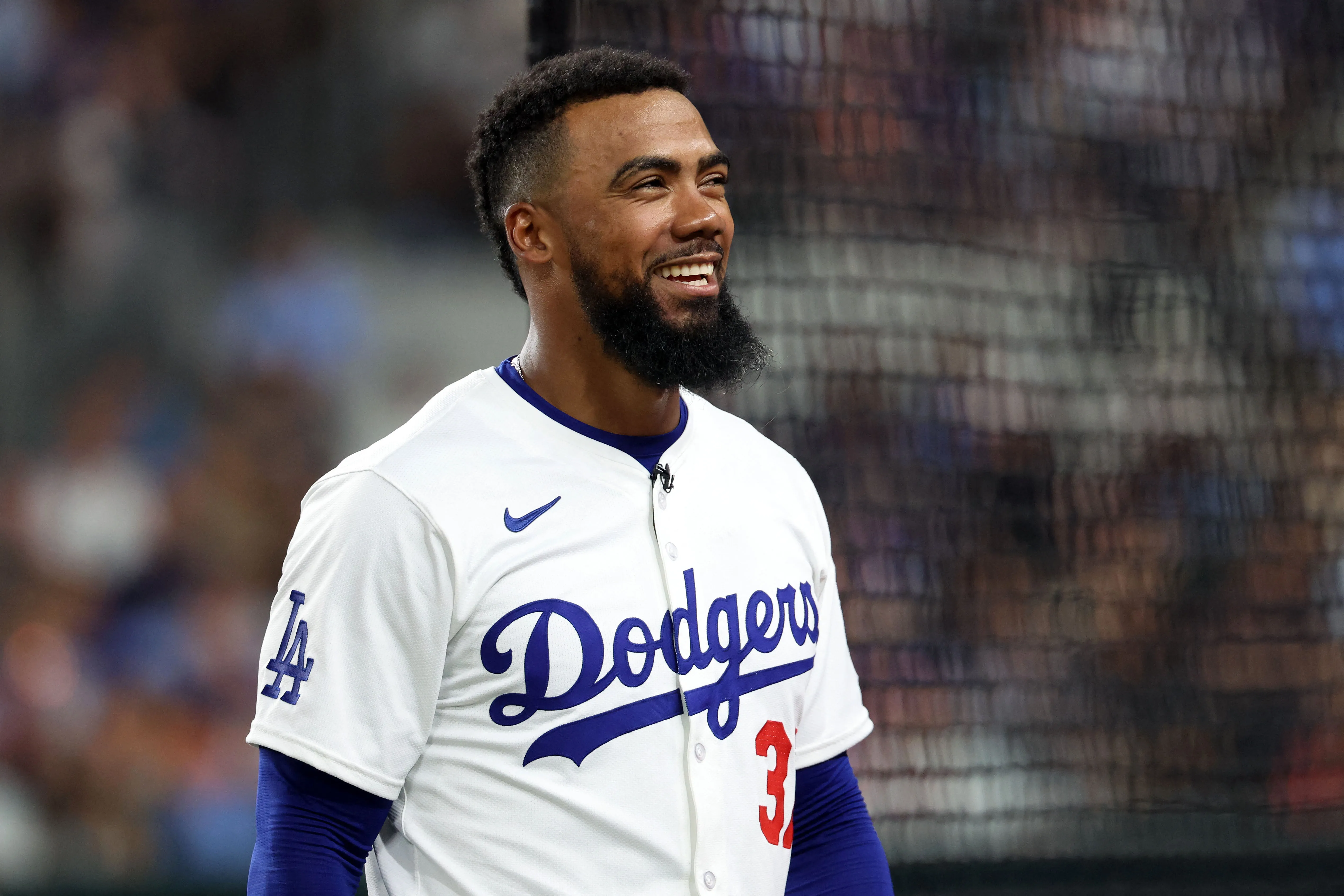
This wasn’t the first time Roberts employed such a strategy. In previous seasons, he had strategically rested veterans like Justin Turner and Cody Bellinger during prolonged struggles. In many cases, the results were positive.
The Persistent Offensive Struggles
Let’s dig into the numbers.
Batting Decline Since the All-Star Break
Hernández’s struggles are not confined to a single week. Since returning from injury earlier this year, his performance has dipped dramatically:
-
Batting average: .214 in the second half.
-
wRC+: 76 (well below the league average of 100).
-
Strikeout rate: climbing, especially against right-handed pitching.
For comparison, earlier in the season Hernández was producing closer to his career norms (.250–.260 average with 25–30 HR power). The post-injury decline is stark.
The Issue Against Right-Handers
One of the clearest patterns is his struggle against right-handed pitchers. Historically, Hernández has been a solid all-around hitter, but in 2025 his splits are heavily skewed:
-
Against lefties: respectable production, driving balls with authority.
-
Against righties: weak contact, more groundouts, higher strikeouts.
For a team like the Dodgers that faces top-tier right-handed arms almost nightly, this imbalance is a serious problem.
Defensive Concerns Add to the Pressure
The struggles don’t stop at the plate.
Costly Mistakes in the Field
Hernández’s defensive performance has also raised eyebrows. In right field, he has committed multiple errors, including a particularly costly misplay against the Colorado Rockies that directly contributed to a loss.
Scouts note:
-
Limited range: Hernández sometimes fails to cover ground that other right fielders handle with ease.
-
Inconsistent routes: His jumps off the bat aren’t always sharp.
-
Mental lapses: Occasional miscommunication with teammates.
Why Defense Matters More for the Dodgers
The Dodgers are built around depth and versatility. With players like Mookie Betts, Freddie Freeman, and Shohei Ohtani anchoring the lineup, the margin for error defensively is slim. Every mistake in the outfield magnifies the team’s challenges, especially in tight games against playoff-caliber opponents.
Hernández’s missteps have thus amplified the pressure on Roberts to make a change.
Competition from Alex Call
On the same day Hernández sat, Alex Call took over in right field. Call, while not a superstar, has been steady and reliable, both at the plate and in the field.
Why Alex Call Matters
-
Offensively, Call has shown enough contact ability and patience to keep innings alive.
-
Defensively, he provides stability and reliability—two traits Roberts values highly.
-
He is also younger, hungrier, and eager to prove himself, which resonates well in a competitive clubhouse.
Implications for Hernández
Roberts has made it clear that playing time will be earned, not guaranteed. If Call continues to perform solidly, Hernández could face reduced starts unless he breaks out of his slump.
Broader Implications for the Dodgers
This isn’t just about one player—it’s about the team’s overall trajectory.
Playoff Aspirations on the Line
The Dodgers are perennial contenders, and every roster decision carries weight. Roberts cannot afford to carry an outfielder who is struggling both offensively and defensively without at least trying alternatives.
The Message to the Clubhouse
By sitting Hernández, Roberts sends a clear message: Performance matters. Even veterans are not immune from accountability. This can spark competition and raise the overall standard within the roster.
Fantasy Baseball Angle
For fantasy baseball players, Hernández’s slump is more than just frustrating—it’s damaging. His reduced playing time lowers his value, and unless he rebounds soon, managers may need to consider alternatives.
Breaking Down the Narrative: Punishment vs. Accountability
Though Roberts insisted it wasn’t punishment, many fans interpreted it differently. In truth, it may be both:
-
Not punishment in the disciplinary sense.
-
Accountability in the performance sense.
Roberts has a reputation as a “player’s manager,” but he also has to win. Balancing empathy with accountability is the hallmark of his leadership.
Can Hernández Bounce Back?
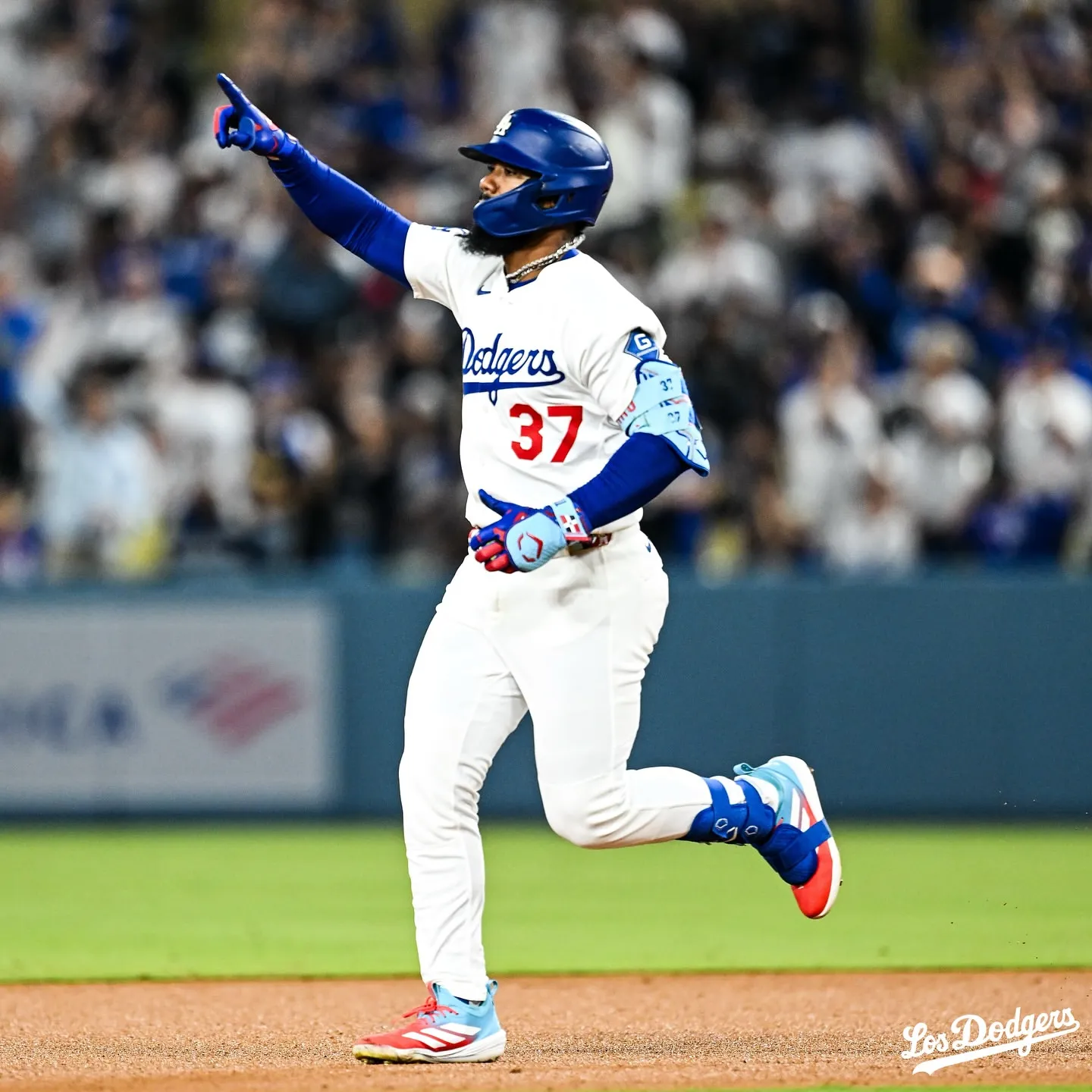
History suggests he can.
Track Record of Power
Hernández has multiple 30-homer seasons in his career. His raw power is undeniable. When he’s locked in, he’s capable of carrying an offense.
Adjustments Needed
For a rebound, Hernández must:
-
Shorten his swing against righties.
-
Improve plate discipline, laying off breaking balls outside the zone.
-
Regain defensive focus, cutting down on unforced errors.
If he does, he could reclaim his starting role quickly.
The Psychological Battle
Beyond mechanics, this is a mental game.
Slumps are often magnified by pressures of expectation. In Los Angeles, with its passionate fanbase and relentless media spotlight, every mistake feels larger.
Roberts’ decision to bench Hernández may relieve some of that pressure. Instead of grinding nightly under scrutiny, he gets two days to reset and recalibrate.
A Defining Moment for Teoscar Hernández
The decision by Dave Roberts to bench Teoscar Hernández may have been framed as a “reset,” but it highlights deeper concerns: declining offense, shaky defense, and rising competition.
For the Dodgers, this move reflects a broader strategy—holding veterans accountable, rewarding performance, and doing whatever it takes to prepare for October.
For Hernández, it’s a pivotal crossroads. Will he use the time off to rediscover his swing, lock in defensively, and reestablish himself as an everyday force? Or will younger, steadier players like Alex Call slowly take his spot?
One thing is certain: Dodgers fans, fantasy baseball managers, and the wider MLB community will be watching closely. Because sometimes, a two-day benching says more about a player’s future than an entire month’s worth of games.
Related News
